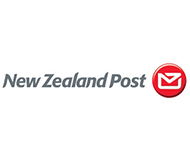New Zealand Post
Home » Resources » Case Studies » New Zealand Post

Business objective
Letters International had some problems. The division was using a number of different applications in geographically dispersed locations, making it difficult to share information between systems.
Business benefits
A very complex process has been simplified by B2BE’s solution, users see only what they need to see, and the system is intelligent.
NZ Post improves its process
NZ Post has used B2BE’s business process management skills to completely overhaul its international bulk mail lodgements business. Smart internet-based information systems have shelved paper and empowered Post’s supply chain partners – increasing profitability and dramatically improving work processes.
Customer profile
New Zealand Post’s Letters International division coordinates the collection and delivery of bulk mail lodgements from overseas.
International publishing companies use Letters International’s services to collect their pre-addressed publications locally, transport them to New Zealand, then stamp and distribute them to households around the country.
This process involves coordinating a number of different participants in a complex supply chain, including Letters International customers such as Doubleday and Reader’s Digest, freight forwarders (both local and overseas) and the International Mail Service Centre (IMSC) in Auckland.

The challenge
Letters International had some problems. The division was using a number of different applications in geographically dispersed locations, making it difficult to share information between systems.
Paper-centric processes resulted in a lack of visibility across its supply chain. Revenue protection checks (ensuring that the details on lodgement forms matched what had actually been sent and charged for) were time consuming and difficult to carry out, and forecasting staff requirements at the IMSC was almost impossible, as the centre was often unaware that large lodgements (that it would need extra staff to process) were about to arrive.
A review also revealed issues for other participants in the supply chain. Clients, for example, had trouble generating the correct product codes for lodgements – a consignment of letters and parcels – because the product codes were assigned using a complex formula based on variables like size, weight and post code.
Selecting the wrong product code, however, could potentially have a huge impact on NZ Post’s revenue for the lodgement. Additionally, freight forwarding companies had neither information on what lodgements to pick up and deliver, nor their size and weight – which meant inappropriate sized trucks often turned up at collection depots.


The solution
What Letters International needed was a business process management tool – and it found it at B2BE (formerly known as The ECN Group in New Zealand). Specialists in creating online business processes, B2BE dispatched a team of business analysts who worked with Letters International to understand where its core processes required improvement.
They established how the organisation wanted things to work (and how they actually were working), both within the business, and in terms of its interactions with outside parties such as freight forwarders, clients and NZ Post Mail Centres.
B2BE ‘s goal was to develop an application that would greatly improve Letters International’s supply chain processes. The application would also need to be accessed via a web browser, to ensure its functionality was available to all stakeholders, whatever their level of in-house technology. If they could access the internet, they could access the solution.
Once a set of outcomes was agreed, B2BE quickly configured its system to capture Letters International’s vision of a streamlined online process. The new application was christened LISCO – Letters International Supply Chain Optimisation – and has completely optimised the bulk mail lodgements process.
Formerly manual activities have been automated or replaced, business rules are enforced and LISCO has the facility to alert key personnel when a business process is not performing as it should, or a service level agreement is about to be breached.
The outcome
For Letters International, LISCO now affords complete transparency across the entire bulk mail process and every event in it. The system is transactional and provides each of its users with the appropriate level of process management access.
The objective being to avoid the former ‘information overload’ approach that let all users see all information about transactions – as opposed to only allowing users to see the information they needed to perform their job effectively.
For customers like Doubleday (which sends up to 30,000 parcels to New Zealand a month – books, CDs, DVDs and videos) LISCO allows easy selection of product codes, lodgement template construction for reuse at a later date, and automatic real-time lodgement acknowledgment from NZ Post.
“A very complex process has been simplified, ” “Users see only what they need to see and the system is intelligent. ”
Don Ponsford, NZ Post Inbound Market Manager.
For customers like Doubleday (which sends up to 30,000 parcels to New Zealand a month – books, CDs, DVDs and videos) LISCO allows easy selection of product codes, lodgement template construction for reuse at a later date, and automatic real-time lodgement acknowledgment from NZ Post.
”The system has eliminated a lot of time-wasting paper management (faxes etc.) and handling,” says Doubleday Australia business administration manager Richard Blundstone. Waiting for monthly statements that previously had to be reconciled by hand is a thing of the past, he says, because with LISCO it’s all available online. Doubleday can also track the progress of a lodgement right through the system from pickup to delivery. “We know exactly where everything is at any time,” says Blundstone.
And Doubleday aren’t the only ones who have improved operational efficiency with LISCO. In fact, a post-implementation review of the effectiveness of the solution has shown that not only did NZ Post achieve its objectives but all other categories of user received significant advantages.


Freight forwarders, for example, are using reports generated by LISCO as load manifests. Management are then able to use this information intelligently for demand forecasting and route planning – allowing them to send appropriate sized vehicles for pickups.
The freight forwarders’ internal systems have also been modified to automatically message LISCO the status of specific lodgements. This messaging functionality is also provided by B2BE’s messaging gateway – helping to integrate disparate systems and making critical information available to all supply chain participants.
In addition, staff at NZ Post’s distribution centres now know what items have been dispatched and what has arrived – and can match up all components of a shipment using LISCO. Revenue is also protected as the team receiving the lodgement is able to compare it to the original selected product code to confirm that the right product code was used.
This activity is referred to as ‘Revenue Protection’ and has been responsible for saving NZ Post considerable sums of money. The International Mail Service Centre can also now accurately forecast incoming mail lodgements and adjust staffing levels accordingly.
More to come
Don Ponsford, NZ Post inbound market manager, says LISCO has dramatically increased visibility within the business, allowing management to zero in on root cause issues in real-time (See Fig 1.0 below). “A very complex process has been simplified,” he says. “Users see only what they need to see and the system is intelligent.”
There were a number of learnings, he says. “Defining, documenting and optimising the core service delivery processes was a hugely valuable exercise in itself. A business process management framework such as B2BE’s is an excellent way of facilitating these processes.” Ponsford says the flexibility of the LISCO system also gives NZ Post the ability to evolve the solution as the needs of its stakeholders change.
So impressed was NZ Post with LISCO says Ponsford, that it has recently deployed it offshore. Renamed ‘Solution for Extra Territorial Offices of Exchange’ (SETOE) this extended version (with addition of .NET smart client technology) of the original LISCO framework has been rolled out to manage collaboration with overseas customers.
”It’s being exported because it provides an operational tool for Post’s offshore customers,” he says, “and at the same time, provides NZ Post management with a real-time view of our customers’ activity.”
Looking further ahead Ponsford says NZ Post and B2BE have just begun a large project to manage domestic business mail lodgements – once again essentially using an enhanced domestic version of the LISCO project.